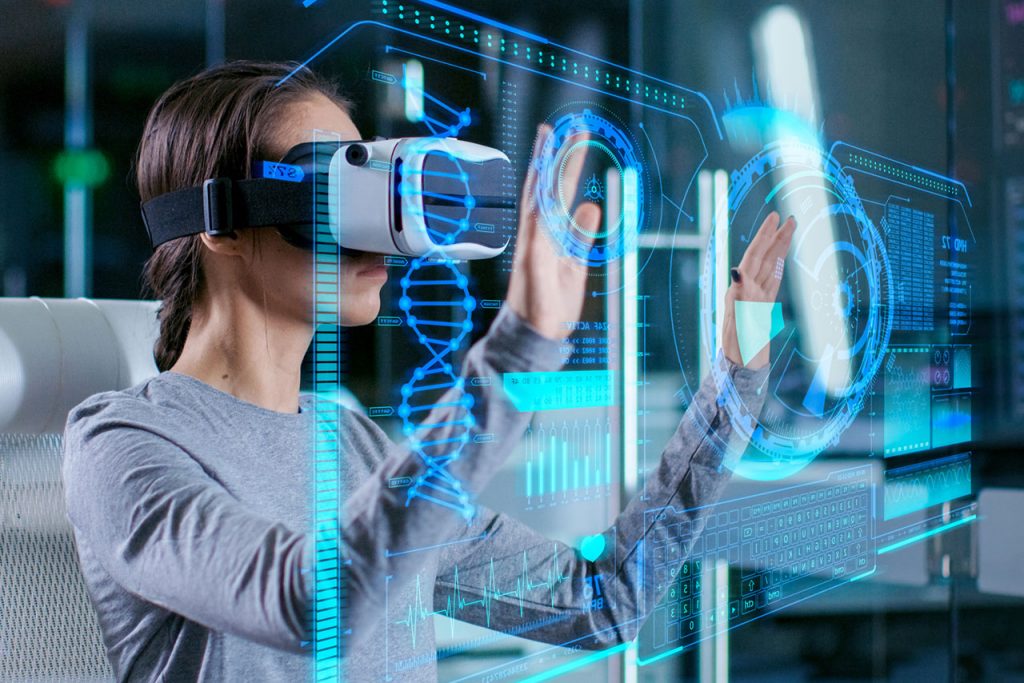Education & Career Trends: March 7
Curated by the Knowledge Team of ICS Career GPS

- Excerpts are taken from an article published on makeuseof.com.
The interest in virtual reality (VR) has never been higher, as companies like Meta and Apple continue to invest millions into VR development. If you’re thinking of pursuing a career in virtual reality development, it’s important to plan.
There’s no bachelor’s degree just for studying virtual reality development, so aspiring professionals need to learn about the different technologies through different sources, like books, boot camps, and training sessions.
Here’s everything you need to know to get started.
What is a VR Developer?
A VR developer is a professional who specialises in designing and implementing software applications for virtual reality environments. They leverage the immersive, interactive nature of VR to create a wide range of experiences, including games, simulations, educational software, and more.
A critical part of their role is to conceptualise, develop, and optimise VR applications that effectively use the three-dimensional space and unique interaction models provided by VR technologies.
A common misconception among many readers is that VR developers only focus on games. However, VR development has many applications, from architecture to learning environments. VR developers must have an understanding of the different technologies and tools being used, as well as the various devices that are available nowadays.
How Can You Become a VR Developer?
As mentioned, becoming a VR developer requires a blend of technical skills, familiarity with specific software and tools, and an understanding of design principles for immersive environments.
Any aspiring VR developer must be proficient with programming languages like C++, C#, and JavaScript. C# and C++ are often required because they integrate well with the Unity engine. Many developers use Unity for game development because it offers support for high-end graphics and because it allows for visual scripting.
Companies also prefer developers who have experience with different game engines. Such game engines allow for creating, rendering, and manipulating 3D environments, and both have robust VR support.
VR developers often have experience in 3D modelling. These tools are used for creating VR environments and for designing custom assets.
Experience with Software Development Kits (SDKs)
Popular VR players in the industry, including Oculus, SteamVR, and even Google, offer custom SDKs. Experience with custom SDKs can go a long way for people who are planning to pursue a career in VR development. These SDKs allow developers to acquaint themselves with core features, such as hand tracking, head tracking, and stereoscopic rendering.
Many companies also deliver custom SDKs to larger studios that are working on VR games ahead of release. This ensures that developers have all the necessary documentation and resources needed to start developing the VR device. If you’re going to pursue a career as a VR developer, it’s very important to familiarise yourself with these tools too.
The Roles and Responsibilities of VR Developers
The roles and responsibilities of VR developers generally vary depending on the organisation they work in and their job titles. But there are some responsibilities that are common for all VR developers.
1. Design and Conceptualisation
- While VR designers are generally responsible for creating and curating in-game virtual reality experiences, they often ask developers for their input and participation during the project phase, especially when brainstorming and designing the overall VR experience.
- Once the design phase is complete, the project enters development.
- Getting feedback from the developers early on makes it easy for studios to better manage development and ensure proper KPIs are set throughout the project.
2. Programming and Development
- The primary responsibility of a VR developer is to write the code that drives the VR experience.
- This includes coding the interactions, physics, graphics, audio, and AI behaviour within the VR environment.
3. Testing and Debugging
- VR developers are responsible for thoroughly testing the VR application to ensure there are no bugs and that the performance is optimised.
- They need to ensure the application doesn’t cause discomfort or motion sickness to the users, which is a common concern in VR.
- Development on VR projects continues long after release, and VR developers often work on releasing timely updates, bug fixes, and patches to ensure long-term adaptability.
4. Integration of VR Hardware
- VR developers need to integrate and optimise the VR application for various hardware platforms like the Oculus Rift, Meta Quest 2, or the PlayStation VR2.
- This includes ensuring the application correctly uses the input from VR controllers, headsets, and other hardware components.
5. Documentation
- Developers are often responsible for creating technical documents that detail the structure and functionality of their code.
- This is crucial for maintenance, troubleshooting, and future development work.
6. Staying Updated with Industry Trends
- While this isn’t a primary responsibility, companies expect VR developers to stay up to date with the latest trends in VR hardware, software, development practices, and techniques.
- This helps them leverage new possibilities, improve their skills, and create more engaging and effective VR experiences.
Interest in virtual reality continues to rise as more and more industries embrace it. As a result, pursuing a career in VR development can be a great choice. It can be incredibly rewarding, both professionally and financially.
…
Have you checked out yesterday’s blog yet
Can’t Relax? Here’s the Solution
(Disclaimer: The opinions expressed in the article mentioned above are those of the author(s). They do not purport to reflect the opinions or views of ICS Career GPS or its staff.)



